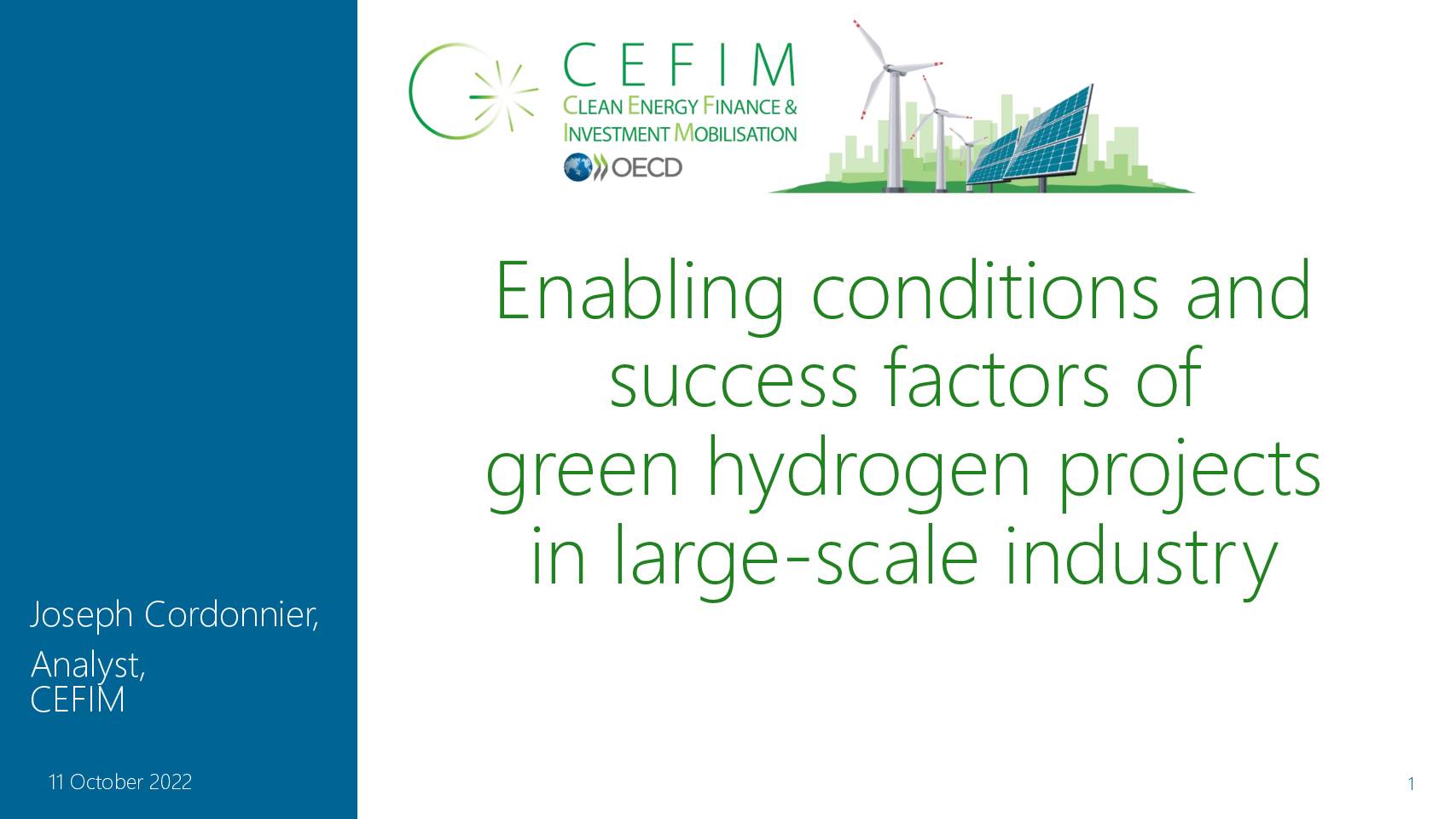During the webinar, our speaker from the OECD presents the main findings from their analysis of how Green Hydrogen can contribute to the decarbonisation of the economy and achieve net zero emissions by 2050. They also present scenarios of global hydrogen demand in 2050 and the role of low-carbon hydrogen in cumulative emissions reduction.
The OECD work primarily focuses on the role of green hydrogen for emerging and developing economies, to understand the enabling market conditions required to set up a viable business, and how government policy can contribute to this. The webinar discusses the status of hydrogen economy plans in emerging and developing countries, what industrial and sector applications are most promising for the domestic economy, as well as the role of renewable energy in delivering Green Hydrogen.
The speaker presents the key technology, policy and business model choices facing countries, to help understand and navigate the complexity of the hydrogen value chain. The webinar presents case studies, offering real-world and practical examples. This includes an analysis of the steel industry, and how production can decarbonise, with the help of green hydrogen. The session wraps up with a summary of key conclusions, recommendations and a short question and answer session.
Download sourceShare this

Sectors: Finance, Hydrogen, Power sector, Renewables
Country / Region: Global
Tags: emissions, energy, GHG emission reduction, green hydrogen, hydrogen, industry, Organisation for Economic Co-operation and Development, renewable energiesIn 1 user collection: C2E2 Webinars
Knowledge Object: eLearning
Published by: Copenhagen Centre on Energy Efficiency
Publishing year: 2022



